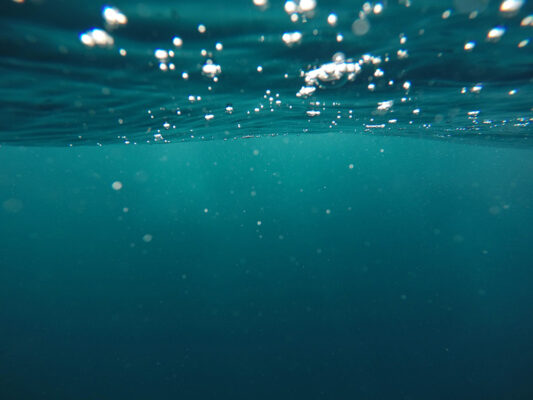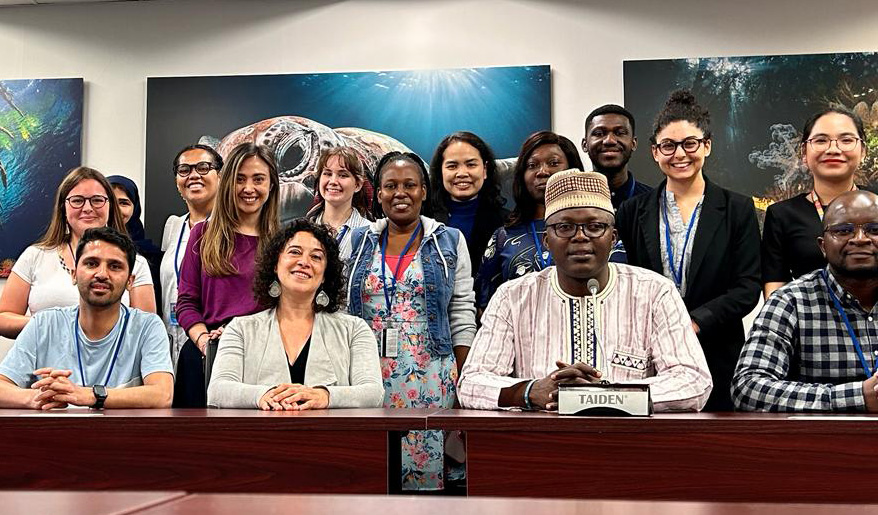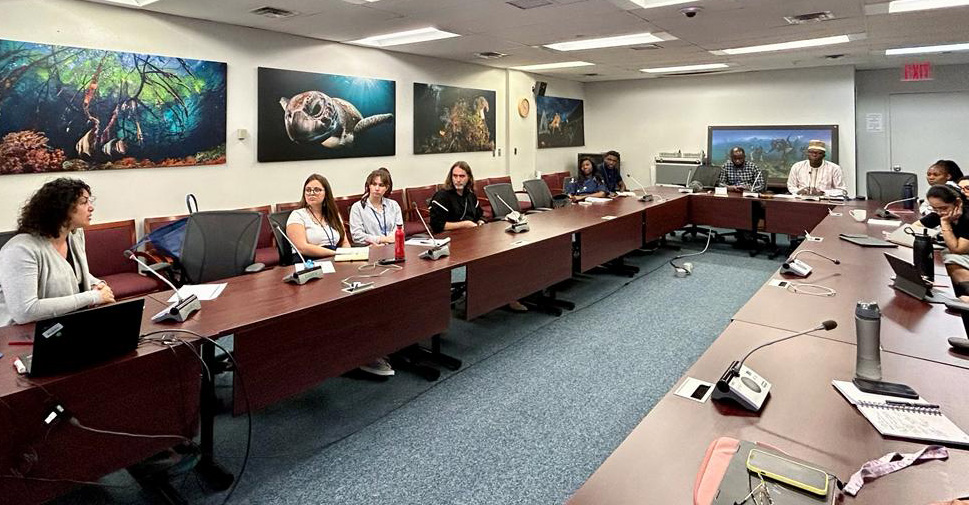Sharing law and art-based research insights with UN Nippon Fellows

As part of our ongoing partnerships with the UN Division on Ocean Affairs and the Law of the Sea, linked to the UN Nippon Fellowship Programme and capacity-building, Hub Director Elisa Morgera and Dr Dylan McGarry (Rhodes University, South Africa), gave a presentation on “Inter- and Trans-Disciplinary Approaches for the Transformative Application of International Marine Biodiversity and Human Rights Law” to the new cohort of UN Nippon Fellows at UN Headquarters in New York.

Reflecting on art-based research approaches for international law
Many fellows participated in the Hub events in and around World Ocean Week. As an opportunity to deepen reflections on ocean governance, Morgera and McGarry met with met on 9 June 2023, to reflect on the role of arts in supporting the interpretation and implementation of the law of the sea, with a particular focus on the protection of marine biodiversity and of ocean-dependent human rights.
The presentation underscored the transformative role of art-based research approaches to support the responsible and respectful integration of indigenous and local knowledge in research and decision making, and in co-developing new, generative and inclusive processes for consultations / public participation / socio-cultural and environmental impact assessments / mediation. Equally, it was noted that art-based research approaches help identify shortcomings & blindspots in current approaches to law implementation, and priority legal research questions that are aligned with human rights holders’ needs and views.
Participants reflected on the opportunities of these approaches to contribute to the implementation of:
- new provisions of the BBNJ Agreement on State parties being guided by the use of relevant traditional knowledge of Indigenous Peoples and local communities, where available;
- the Kunming-Montreal Global Biodiversity Framework 2023-2030, the implementation of which ‘must ensure that the rights, knowledge, including traditional knowledge associated with biodiversity, innovations, worldviews, values and practices of Indigenous peoples and local communities are respected,… including through their full and effective participation in decision-making, in accordance with relevant national legislation, international instruments’; and
- the Paris Agreement on climate change, under which Parties ‘acknowledge that adaptation action should …be based on and guided by the best available science and, as appropriate, traditional knowledge, knowledge of Indigenous peoples and local knowledge systems.’ Here we also discussed the criticism of the UN Special Rapporteur on Climate Change and Human Rights on the actual limitations of Indigenous peoples to share the international climate change regime.
Thirteen Fellow were present in New York to contribute to the conversation. One of them, Rachel Mikwali from Kenya (Project Manager for the NGO ‘Community Action for Nature Conservation’) has now joined the One Ocean Hub team at Strathclyde University in Glasgow, UK, to pursue her research on gender and small-scale fisheries, building on ongoing research on this topic across the Hub focus countries (see also here, here and here).

Reflecting on the potential integration of art-based approaches in international policy fora on the ocean and sustainable development
As part of a broader dialogue with UN partners of the Hub, Morgera and McGarry have started to distil the various contributions that art-based research approaches such as Empatheatre can make to international policy making processes on the ocean, and also on the broader sustainable development agenda, as follows:
- expanding our capacities to understand and engage in a constructive way with complex realities, by experiencing, through art, local inter-generational stories of inter-linked sustainable development challenges and connecting them to our own experiences (challenges shared in other regions, insights from international processes, personal life experiences)
- learning from, while celebrating, Indigenous and local knowledge in a respectful way (without placing the burden on these holders, including the burden to re-live their traumas; and using their own protocols, their own idiomatic reasoning and their own context and associated practices) on the basis also of integrated social and natural sciences research;
- revealing biases in the production of the evidence base for decisions on sustainable development, and providing alternative models to integrate other knowledge systems (including by facilitating inter-generational dialogue, and modelling gender-transformative scenarios), including legal evidence relied upon by national courts, leading to unprecedented decisions on the protection of the environment, cultural heritage and livelihoods; and
- ultimately, making research for sustainable development and decision-making approaches accessible, collaborative and transformative, across local, national and international levels.”
We welcome feedback from all those that participated in the Hub events at World Oceans Week 2023, but also at the Food and Agriculture Organization of the UN in Rome in March 2023, and at the UN Climate COP in Sharm-el-Sheik in November 2022 about these initial insights.
Photo: Jeremy Bishop